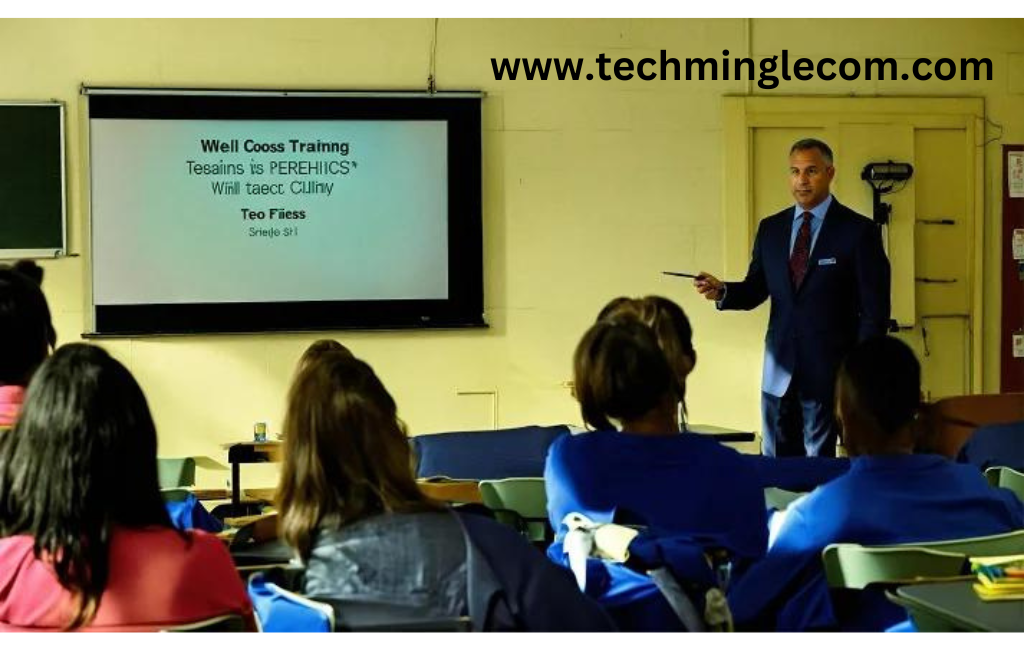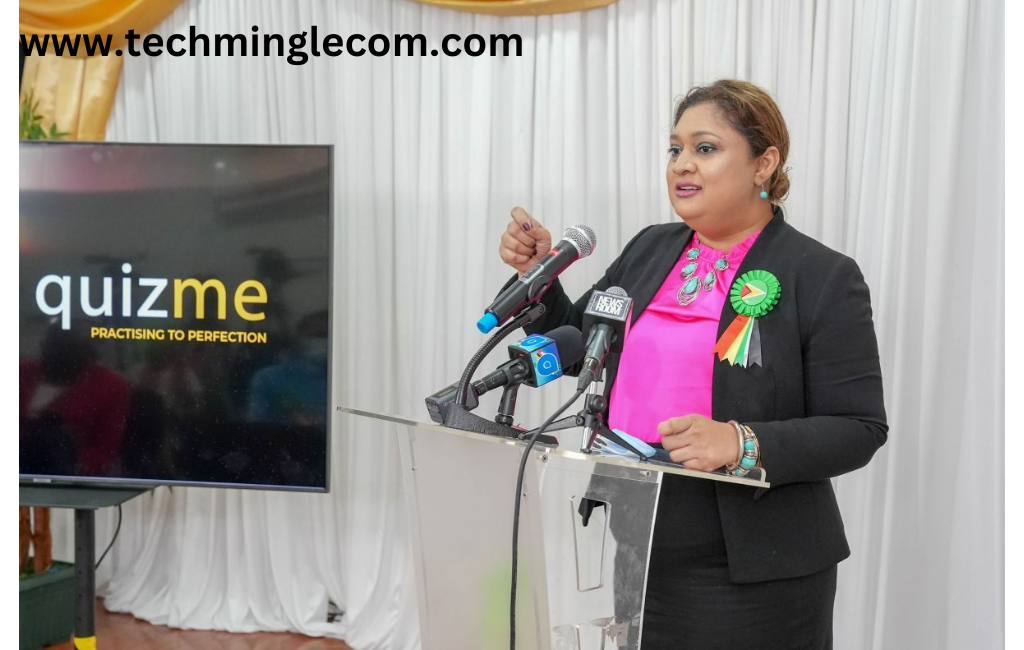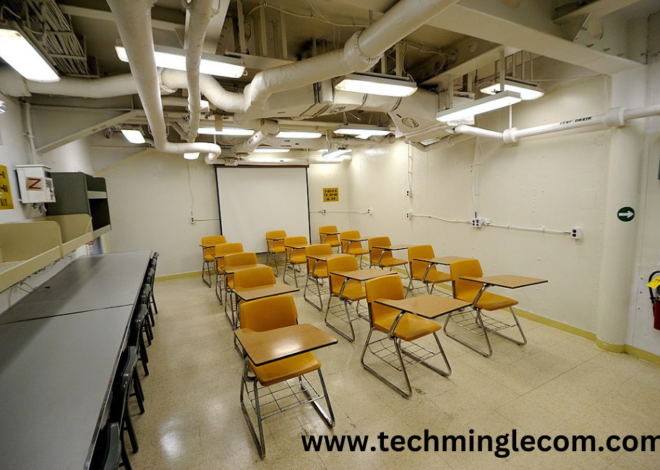
Ministry of Education Quiz:100% Challenge Your Understanding
Introduction to The Ministry of Education Quiz Part 5
Ministry of Education Quiz is an ever-evolving field, and one of the innovative approaches to keep students engaged and knowledgeable is through quizzes. The Ministry of Education quiz series has been a popular tool for fostering learning and assessing knowledge across various subjects. In this article, we’ll dive deep into the Ministry of Education Quiz Part 5, exploring its significance, preparation tips, benefits, challenges, and more.
What is the Ministry of Education Quiz?
The Ministry of Education Quiz is a structured assessment tool designed to test students’ knowledge in different subject areas. It aims to promote learning through a fun and competitive format. These quizzes are crafted to challenge students while providing them with an opportunity to showcase their understanding.
Significance of Ministry of Education Quiz Part 5
Part 5 of the Ministry of Education Quiz stands out for its unique features. Unlike previous parts, it includes a more diverse range of questions, integrating current events and critical thinking challenges. This part is designed to test not only rote knowledge but also the application of concepts in real-world scenarios.

Preparing for the Ministry of Education Quiz
Preparing for the Ministry of Education Quiz Part 5 requires a strategic approach. Here are some tips to help you get started:
Study Regularly
Consistent study habits are key. Set aside time each day to review material.
Use Quality Resources
Utilize textbooks, online courses, and educational websites.
Practice with Sample Questions
Familiarize yourself with the quiz format by practicing sample questions.
Key Topics Covered in Ministry of Education Quiz Part 5
The quiz covers a broad spectrum of subjects. Here are some of the key areas:
Mathematics
Algebra, geometry, statistics
Science
Biology, chemistry, physics
Social Studies
History, geography, civics
Current Events
Recent news, global issues
Benefits of Participating in the Ministry of Education Quiz
Participation in the Ministry of Education Quiz offers numerous benefits:

Educational Growth
Enhances knowledge and understanding of various subjects.
Personal Development
Builds confidence and improves critical thinking skills.
Recognition
Successful participants often receive certificates and accolades.
Challenges and How to Overcome Them
While the quiz is beneficial, it can also be challenging. Common difficulties include time management and anxiety. Here are some tips to overcome these challenges:

Practice Time Management
Use timed practice sessions to improve speed and efficiency.
Stay Calm
Practice relaxation techniques like deep breathing to manage anxiety.
How to Access the Ministry of Education Quiz
Accessing the Ministry of Education Quiz is straight forward. Here’s how you can register:
Visit the Official Website
Go to the Ministry of Education’s website.
Register
Fill out the registration form with your details.
Confirm Registration
Check your email for confirmation and further instructions.
Role of Teachers and Educators
Teachers play a crucial role in supporting students through the quiz. They can:
Provide Study Materials
Supply students with relevant resources.
Offer Guidance
Help students understand complex topics and answer their questions.
Encourage Participation
Motivate students to take part and give their best effort.
Feedback and Improvement
Feedback is essential for continuous improvement. The Ministry of Education values participants’ feedback to enhance future quizzes. Participants can provide feedback through:
Surveys
Complete post-quiz surveys.
Feedback Forms
Fill out detailed feedback forms available on the website.
Success Stories
Many students have benefited from the Ministry of Education Quiz. Here are a few testimonials:
John Doe
“Participating in the quiz helped me improve my knowledge and gain confidence.”
Jane Smith
“The quiz was challenging but fun. It prepared me well for my exams.”
Future of the Ministry of Education Quiz
The quiz series continues to evolve. Future parts will include:
More Interactive Elements
Incorporating multimedia and interactive questions.
Broader Subject Coverage
Expanding the range of subjects to include more specialized topics.
In-Depth Preparation Strategies
Let’s delve deeper into specific strategies that can give you an edge in preparing for the Ministry of Education Quiz Part 5.
Creating a Study Schedule
A well-structured study schedule is essential for effective preparation. Here’s how to create one:
Assess Your Strengths and Weaknesses
Identify which subjects you are good at and which ones need more attention.
Set Realistic Goals
Divide your study time into manageable chunks and set achievable targets for each session.
Include Breaks
Regular breaks help maintain focus and prevent burnout. Use techniques like the Pomodoro Technique for better productivity.
Utilizing Online Resources
The internet is a treasure trove of educational resources. Here are some you should consider:
Educational Websites
Websites like Khan Academy and Coursera offer free courses on various subjects.
YouTube Channels
Channels like CrashCourse and TED-Ed provide informative videos that make learning fun.
Quiz Apps
Apps like Quizlet and Kahoot can help you practice and test your knowledge.
Group Study Sessions
Studying in groups can be highly beneficial. Here’s why:
Diverse Perspectives
Different viewpoints can help you understand topics better.
Peer Motivation
Studying with friends can keep you motivated.
Shared Resources
Pooling resources can give you access to a wider range of study materials.
Advanced Topics in Part 5
Part 5 of the quiz goes beyond basic knowledge, testing students on more advanced topics. Here are a few areas to focus on:
Critical Thinking and Problem Solving
Questions designed to test your analytical abilities and problem-solving skills. Example:
Current Events and General Knowledge
Stay updated with recent news and developments. Follow reliable news sources and read up on current affairs regularly.
Mental and Physical Preparation
Preparing your mind and body is just as important as studying. Here are some tips:
Mental Preparation
Practice Mindfulness
Techniques like meditation can help improve concentration.
Stay Positive
Maintain a positive attitude to reduce anxiety and boost confidence.
Physical Preparation
Exercise Regularly
Physical activity can enhance cognitive function.
Healthy Diet
Eat nutritious foods to fuel your brain.
Common Mistakes to Avoid
Avoiding common pitfalls can enhance your performance. Here are some to watch out for:
Procrastination
Start preparing early to avoid last-minute cramming.
Overloading
Don’t try to study too much at once. Focus on understanding concepts rather than memorizing.
Neglecting Rest
Ensure you get adequate sleep, especially before the quiz.
Technological Tools for Preparation
Utilizing technology can streamline your preparation process. Consider these tools:
Study App
Apps like Evernote and Notion can help organize your notes.
Flashcard
: Digital flashcards on platforms like Anki can aid in memorization.
Practice Test
Online platforms often offer practice tests that simulate the actual quiz environment.
Parental Support and Involvement
Parents play a crucial role in a student’s academic success. Here’s how they can help:
Encouragement
Positive reinforcement can boost a student’s confidence.
Resources
Providing access to study materials and a conducive study environment.
Monitoring Progress
Keeping track of study schedules and performance to ensure consistent effort.
Celebrating Success
It’s important to celebrate your achievements, no matter how small. Here’s why:
Boosts Morale
Celebrations can enhance motivation.
Recognizes Effort
Acknowledging hard work reinforces positive behavior.
Provides Relaxation
Taking time to celebrate can provide a much-needed break and prevent burnout.
Incorporating Feedback into Future Preparation
Learning from your experiences is key to continuous improvement. Here’s how to use feedback effectively:
Analyze Performance
Identify areas where you did well and areas needing improvement.
Adjust Study Plans
Modify your study schedule based on feedback to focus more on weak areas.
Seek Advice
Don’t hesitate to ask teachers or mentors for guidance on how to improve.
How to Stay Motivated During Your Preparation
Maintaining motivation throughout your preparation is essential. Here are some strategies to help you stay focused and inspired:
Set Clear Goals
Short-Term Goal
Break down your study plan into daily or weekly targets.
Long-Term Goals
Keep the final goal in mind, such as performing well on the quiz or achieving a specific screen.
Reward Yourself
Small Rewards
Treat yourself after completing study sessions. This could be a favorite snack, a short break, or a fun activity.
Major Rewards
Plan a bigger reward for achieving significant milestones, like completing all practice tests or mastering a difficult subject.
Stay Positive
Affirmations
Use positive affirmations to boost your confidence. Remind yourself of your strengths and past successes.
Visualization
Visualize yourself succeeding in the quiz. Imagine the feeling of accomplishment and pride.
Support Systems
Having a support system can make a significant difference in your preparation journey. Here are some ways to build and utilize a support network:
Study Groups
Peer Support
Join or form a study group with classmates or friends. This can provide mutual support and accountability.
Discussion and Collaboration
Discussing topics and solving problems together can enhance understanding.
Mentorship
Teachers and Educators
Seek guidance from teachers who can provide valuable insights and resources.
Online Communities
Participate in online forums and communities related to the quiz. You can find support, resources, and advice from experienced participants.
Practical Tips for the Quiz Day
On the day of the quiz, being well-prepared and staying calm are crucial. Here are some practical tips to help you perform your best:
Before the Quiz
Good Night’s Sleep
Ensure you get a full night’s sleep before the quiz to stay alert and focused.
Healthy Breakfast
Eat a nutritious breakfast to fuel your brain.
Arrive Early
Arrive at the quiz location early to avoid any last-minute stress.
During the Quiz
Read Instructions Carefully
Make sure you understand all instructions before starting.
Time Management
Keep track of time and pace yourself. Allocate time to each section and question.
Stay Calm
If you encounter a difficult question, stay calm and move on to the next one. You can return to it later if time permits.
After the Quiz
After completing the quiz, it’s important to reflect on your experience and take steps for further improvement. Here’s what you can do:
Self-Reflection
Evaluate Your Performance
Review which areas you felt confident in and which ones were challenging.
Identify Weak Spots
Note any subjects or question types that were particularly difficult and plan to focus on them in future studies.
Seek Feedback
Ask for Feedback
If possible, seek feedback from teachers or peers on your performance.
Review Answers
Go through the quiz questions and answers, if available, to understand your mistakes.
Planning for the Future
Even after completing the Ministry of Education Quiz Part 5, continuous learning and improvement are vital. Here are some steps you can take:
Continuous Learning
Stay Curious
Keep exploring new topics and subjects beyond the quiz syllabus.
Engage in Discussions
Participate in educational discussions and debates to broaden your perspective.
Set New Goals
Academic Goals
Set new academic goals based on your performance and interests.
Personal Development
Plan activities that promote personal growth, such as reading books, learning new skills, or engaging in hobbies.
Leveraging the Ministry of Education Quiz Experience
The experience of participating in the Ministry of Education Quiz Part 5 can be highly beneficial. Here’s how to make the most of it:
Building a Strong Academic Profile
Certificates and Recognition
Include any certificates or recognition you receive from the quiz in your academic portfolio.
Skills and Knowledge
Highlight the skills and knowledge gained from the quiz in your applications for higher education or jobs.
Networking
Connect with Peers
Maintain connections with fellow participants. They can be valuable contacts in the future.
Join Educational Networks
Join educational networks or alumni groups associated with the quiz.
Encouraging Others to Participate
Encourage your friends and classmates to take part in the Ministry of Education Quiz. Here’s why:
Promotes Learning
Encouraging others to participate helps create a culture of learning and curiosity.
Builds Community
Participation can foster a sense of community and collective achievement.
Real-Life Applications of Ministry of Education Quiz Knowledge
Participating in the Ministry of Education Quiz Part 5 not only enhances your academic skills but also has real-life applications. Here are some ways the knowledge gained can be useful:
Critical Thinking in Daily Life
Problem-Solving
The quiz hones your problem-solving skills, which are essential in making informed decisions and tackling everyday challenges.
Analyzing Information
Enhanced analytical skills enable you to critically evaluate information, leading to better decision-making.
Academic and Career Advantages
College Applications
Participation in such quizzes can bolster your college applications, showcasing your commitment to academic excellence.
Career Skills
Skills like time management, critical thinking, and effective communication are highly valued in the workplace.
Engaging with the Community
Connecting with the community and sharing your knowledge can greatly enhance your learning experience. Here’s how you can get involved:
Organize Study Groups
Peer Teaching
Mind Maps: Develop mind maps to visualize the connections between topics.
Resource Sharing
Share study materials and resources with your group to enhance collective learning.
Volunteer Opportunities
Tutoring
Volunteer to tutor younger students preparing for the quiz. This not only aids them but also solidifies your own knowledge.
Community Workshops
Organize workshops or seminars in your community to share tips and strategies for quiz preparation.
Adapting to Different Learning Styles
Understanding and adapting to different learning styles can significantly enhance your preparation. Here are some techniques:
Visual Learners
Mind Maps
Create mind maps to visualize connections between topics.
Infographics
Use infographics and diagrams to break down complex information.
Auditory Learners
Podcasts
Listen to educational podcasts related to the quiz topics.
Group Discussions
Engage in group discussions to reinforce learning through conversation.
Kinesthetic Learners
Hands-On Activities
Incorporate hands-on activities like experiments or interactive models.
Movement-Based Learning
Use techniques like walking while studying to enhance concentration.
Utilizing Feedback for Continuous Improvement
Feedback is a crucial part of the learning process. Here’s how to maximize its benefits:
Seek Constructive Criticism
Teacher Feedback
Regularly ask teachers for feedback on your progress and areas needing improvement.
Peer Review
Participate in peer review sessions where you can receive and give constructive criticism.
Implementing Changes
Action Plans
Create action plans based on feedback to address weaknesses.
Track Progress
Monitor your progress over time to ensure continuous improvement.
The Importance of Mental Health
Maintaining good mental health is vital during your preparation. Here are some tips to keep your mind healthy:
Stress Management
Relaxation Techniques
Practice relaxation techniques like deep breathing, meditation, and yoga.
Healthy Hobbies
Engage in hobbies that you enjoy to relax and recharge.
Seek Support
Talk to Someone
If you feel overwhelmed, talk to a trusted friend, family member, or counselor.
Professional Help
Don’t hesitate to seek professional help if needed. Mental health is as important as physical health.
Exploring Future Educational Opportunities
Participating in the quiz can open doors to various educational opportunities. Here’s how to explore them:
Scholarships and Grants
Research Opportunities
Look for scholarships and grants offered by educational institutions, non-profits, and government organizations.
Application Process
Understand the application process and prepare the necessary documents well in advance.
Higher Education
University Programs
Explore university programs that align with your interests and quiz topics.
International Studies
Consider opportunities for studying abroad to gain a global perspective.
Building a Lifelong Learning Habit
The journey of learning doesn’t end with the quiz. Here’s how to build a habit of lifelong learning:
Stay Curious
Continuous Exploration
Keep exploring new subjects and topics that interest you.
Learning Platforms
Utilize online learning platforms like Coursera, Udemy, and Khan Academy for continuous learning.
Networking with Learners
Join Clubs and Societies
Participate in academic clubs and societies to stay engaged with like-minded learners.
Attend Conferences and Seminars
Attend educational conferences and seminars to stay updated with the latest developments in your field of interest.
Conclusion
The Ministry of Education Quiz Part 5 is a valuable tool for students to enhance their knowledge and develop critical thinking skills. By participating, students not only learn but also gain recognition and confidence. Prepare well, stay calm, and give it your best shot!
FAQs
Is the quiz available online?
Yes, the quiz can be accessed online through the Ministry of Education’s website.
Are there any age restrictions for participants?
Generally, the quiz is open to school students, but specific age restrictions may apply.
What type of questions are included in the Ministry of Education Quiz?
The quiz includes multiple-choice questions, short answers, and essay-type questions.
How long does the Ministry of Education Quiz take to complete?
The duration of the quiz varies but typically ranges from 1 to 2 hours.
Can students participate in groups?
While the quiz is usually taken individually, some parts may allow group participation.


